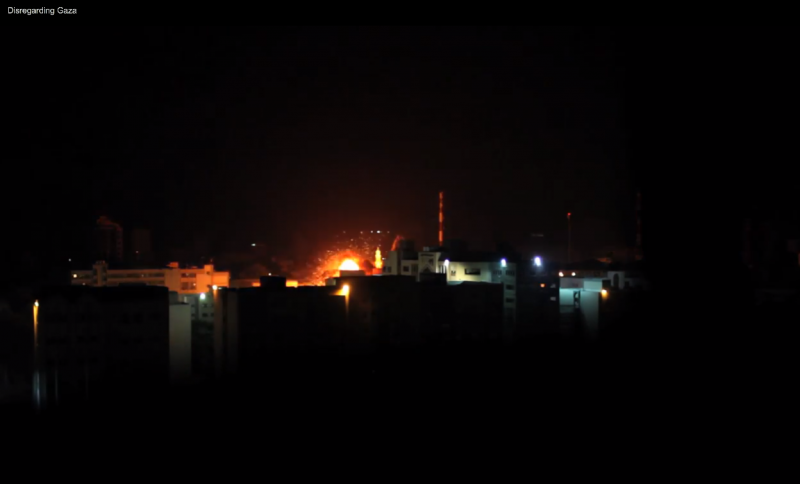
Gaza under attack: A scene from a 10-minute documentary entitled Disregarding Gaza, directed by Tamar Glezerman and Arianna LaPenne, which asks the question, “Why is Gaza not an issue in the upcoming Israeli elections?”
As Israel heads to the polls on Tuesday, the situation in Gaza is not on the agenda of any of the major parties. A new documentary, made by Israeli bloggers, asks why.
The short documentary, directed by Tamar Glezerman and Arianna LaPenne, poses the question: “Why is Gaza not an issue in the upcoming Israeli elections?”.
The documentary, less than 10 minutes in duration, and entitled ‘Disregarding Gaza‘, is essentially a series of interviews with bloggers of Israeli-Palestinian blog-based web magazine +972 with the goal of examining “the mainstream media landscape, and its marginalization of the Palestinians, the occupation and the war in Gaza.”
The documentary starts with a statistic which says that over 90 per cent of Israeli Jews supported the last war on Gaza, followed by the number of casualties on each side (72 Israelis and over 2,200 Palestinians). After showing the city of Tel Aviv as an air raid sirens tears into the background and Gaza under bombardment, the documentary takes us to Nabi Saleh in the West Bank, where a group of Palestinians and Israelis are protesting the occupation. Two photojournalists and members of ActiveStills, the Israeli-Palestinian collective which covers Israel and Palestine, Keren Manor and Oren Ziv, tell us how, in Ziv's words, most West Bank protests are “attacked and blocked by the army”.
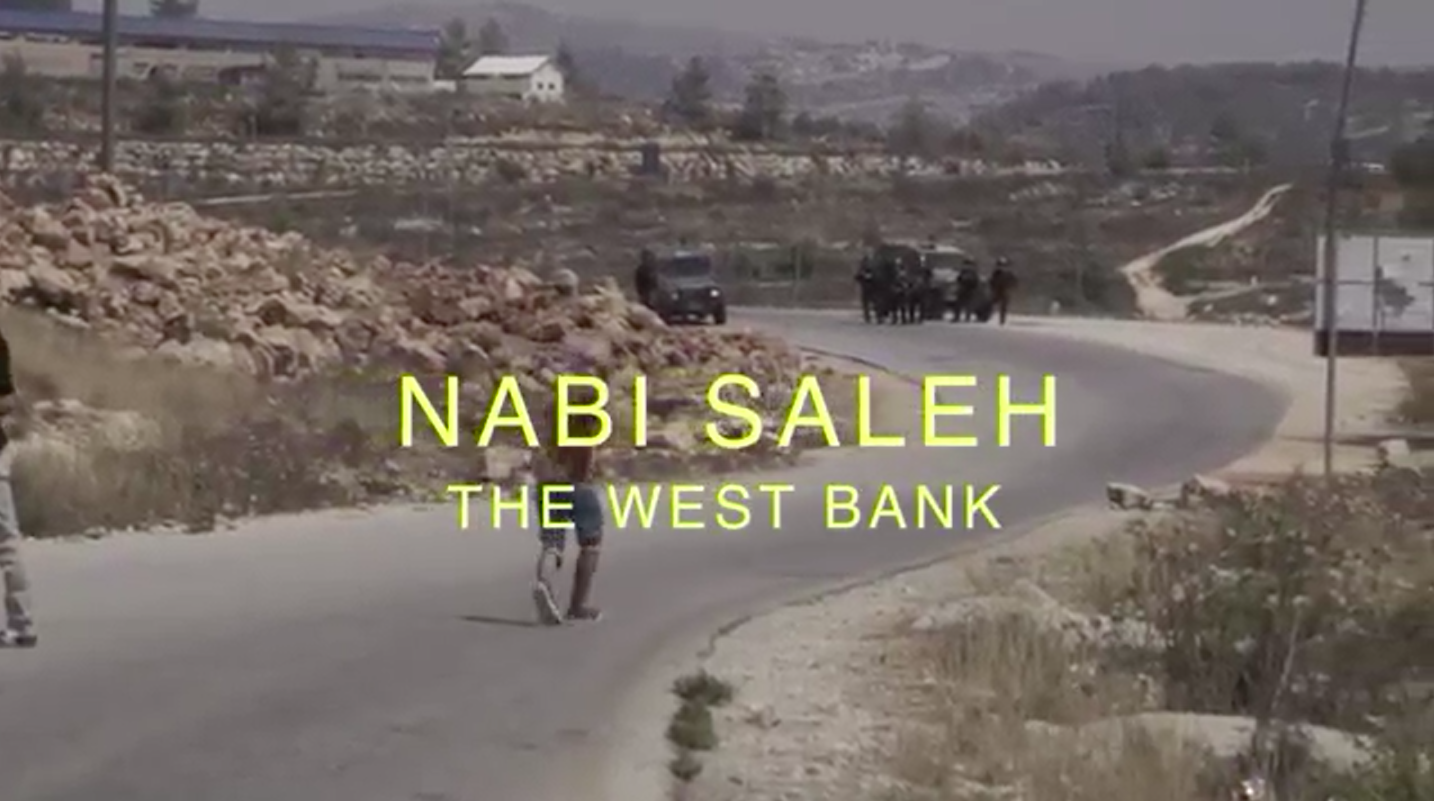
Screenshot from ‘Disregarding Gaza’ showing a Palestinian stone-thrower facing Israeli soldiers
Tel Aviv-based +972 blogger Dahlia Scheindlin claims that the Israeli mainstream media “essentially portrays a very simple narrative that is constantly being reinforced”. Giving examples, she mentions the fact that Gaza has been under blockade since 2007 and the common occurrence of Palestinian non-violent actions such as diplomatic strategies and weekly unarmed demonstrations in the West Bank.
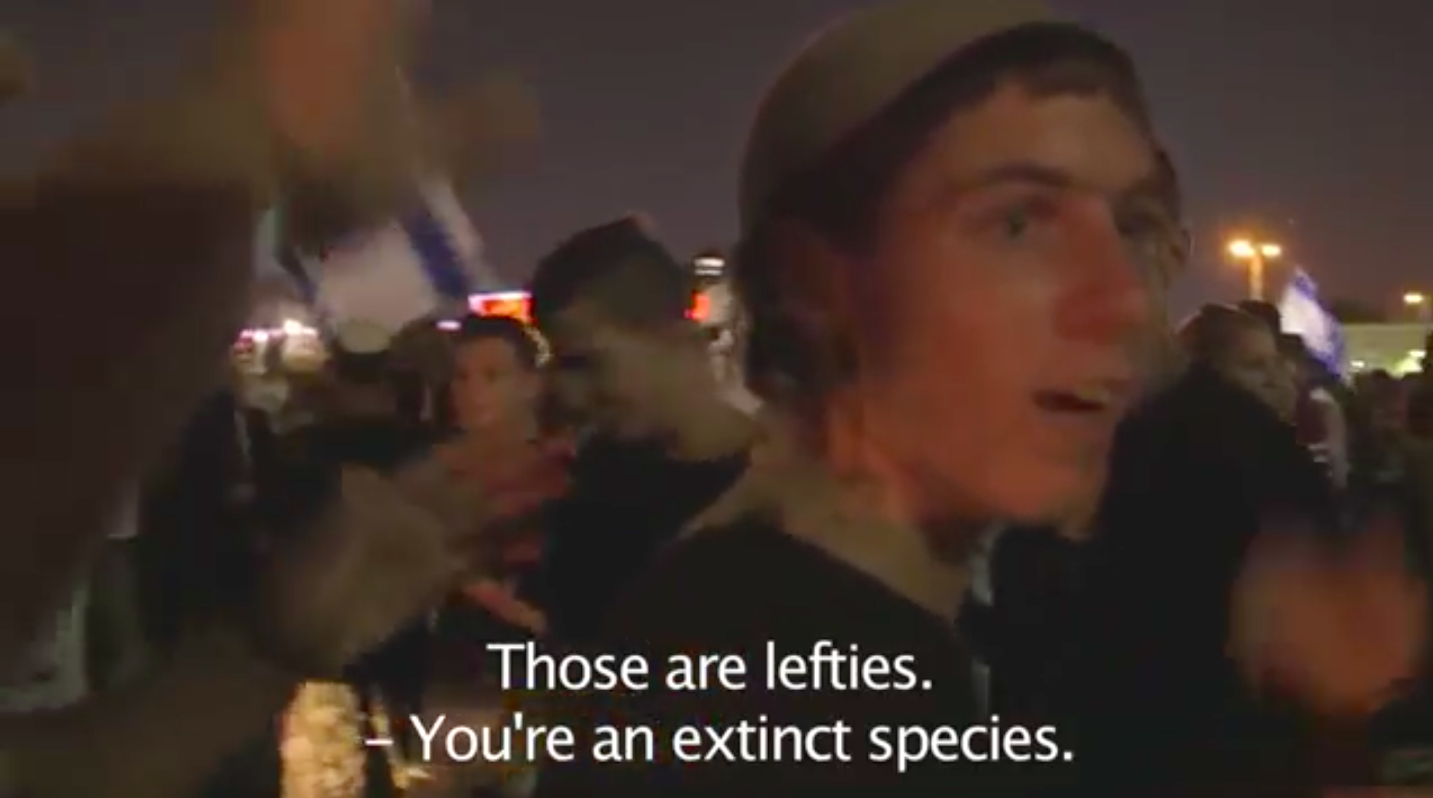
Screenshot from ‘Disregarding Gaza’ showing a Far-Right rally protesting a Mixed Jewish-Arab wedding.
Noam Sheizak, +972's Executive Director, claims that the average Israeli already feels that “the world is against us anyway” and that any attempt to criticize the country makes things worse. But, “at the same time”, he says, he feels privileged for being an Israeli Jew because he can still say “pretty much whatever [he wants]”, adding that Israel is still “a somewhat functioning democracy” for Jews, but “for Palestinians and Asylum Seekers, not so much.”

Screenshot from ‘Disregarding Gaza’ showing a Far-Right rally during the War on Gaza. They were chanting “Gaza, Gaza, Gaza is a cemetery!” and “There are no schools in Gaza, because there are no children left in Gaza!”
Haggai Matar, a Union Leader and +972 contributor, says that the Israeli military is seen as almost beyond criticism. “If they don't tell most of their horrifying stories that were happening in Gaza, then how can you expect people to criticize the war when they hear no criticism of the war on the media, when they don't hear the worst of details but only the IDF's spokesman's line?” he asks.
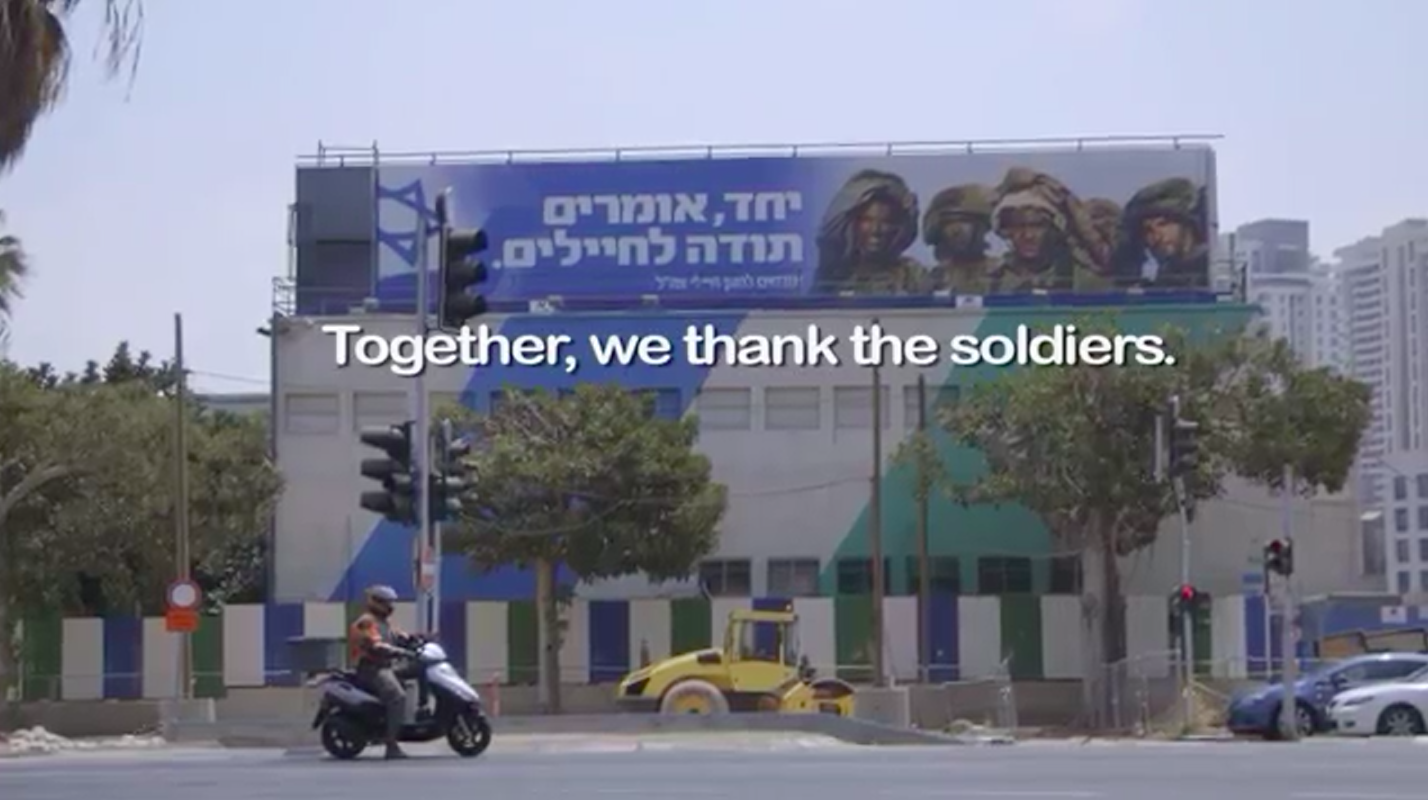
Screenshot from ‘Disregarding Gaza’ showing a panel encouraging Israelis to support the IDF.
Oren Persico, +972 blogger and Media Critic, analyzed the way the Israeli media covered the war. He compares the coverage of the Rafah Incident in which over 130 Palestinians in Gaza were massacred in a single day by the IDF in Yediot Aharonot and Israel Today, “which are read by 70pc of Israelis”, versus the coverage by Haaretz, read by 5pc of Israelis, “the elite.” The ‘incident’ was a result of Israel's infamous Hannibal Doctrine whereas the IDF would risk the life of one its soldiers to avoid dealing with a hostage situation. The soldier in question was Lt. Hadar Goldin, who ended up dying during the “massive use of infantry, artillery and air fire” in Rafah, as Jpost described it.
Persico showed how Haaretz featured the captured soldier in its headline and relegated the news of “at least 123 dead in Rafah” to the bottom of the page. Yediot Aharonot on the other hand, dedicated its entire front page on that day to the abduction and made no mention of Palestinian casualties. And it's only on Page 8 of that same journal, in the middle of a commentary, that Yediot Aharonot mentions that “the IDF bombed heavily in Rafah”.
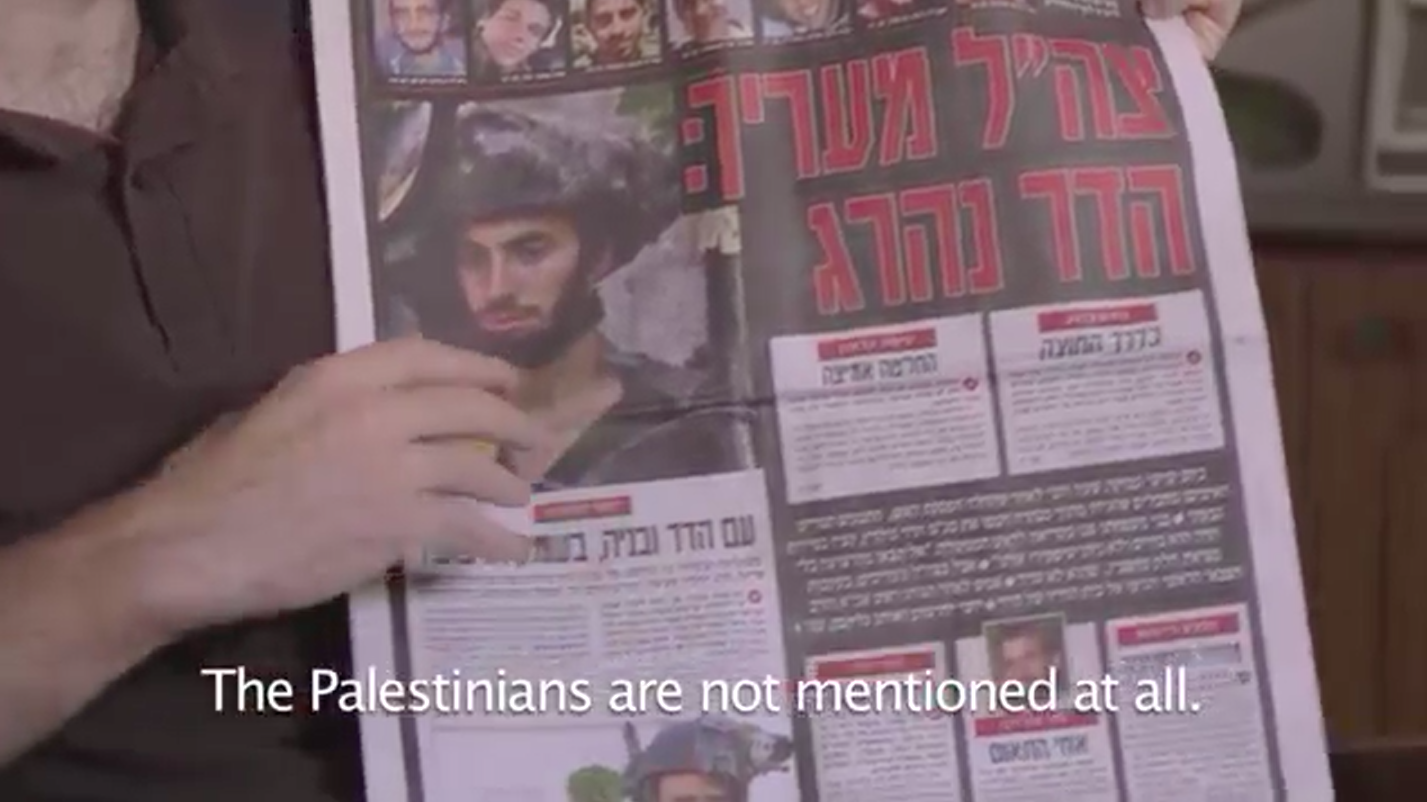
Screenshot from ‘Disregarding Gaza’ showing Persico holding a copy of Yediot Aharonot
The documentary then takes us to Bi'ilin, site of the now-famous weekly nonviolent demonstrations against the Separation Wall that have been occurring since 2005 and which regularly attract international activists , including 1975 Nobel Peace Prize winner Mairead Maguire. Interviewed this time Samer Badawi, a +972 blogger who was in Gaza during the last war. Badawi speaks of how he saw “the three fronts of modern warfare [land, sea and air] all directed at a civilian population.”
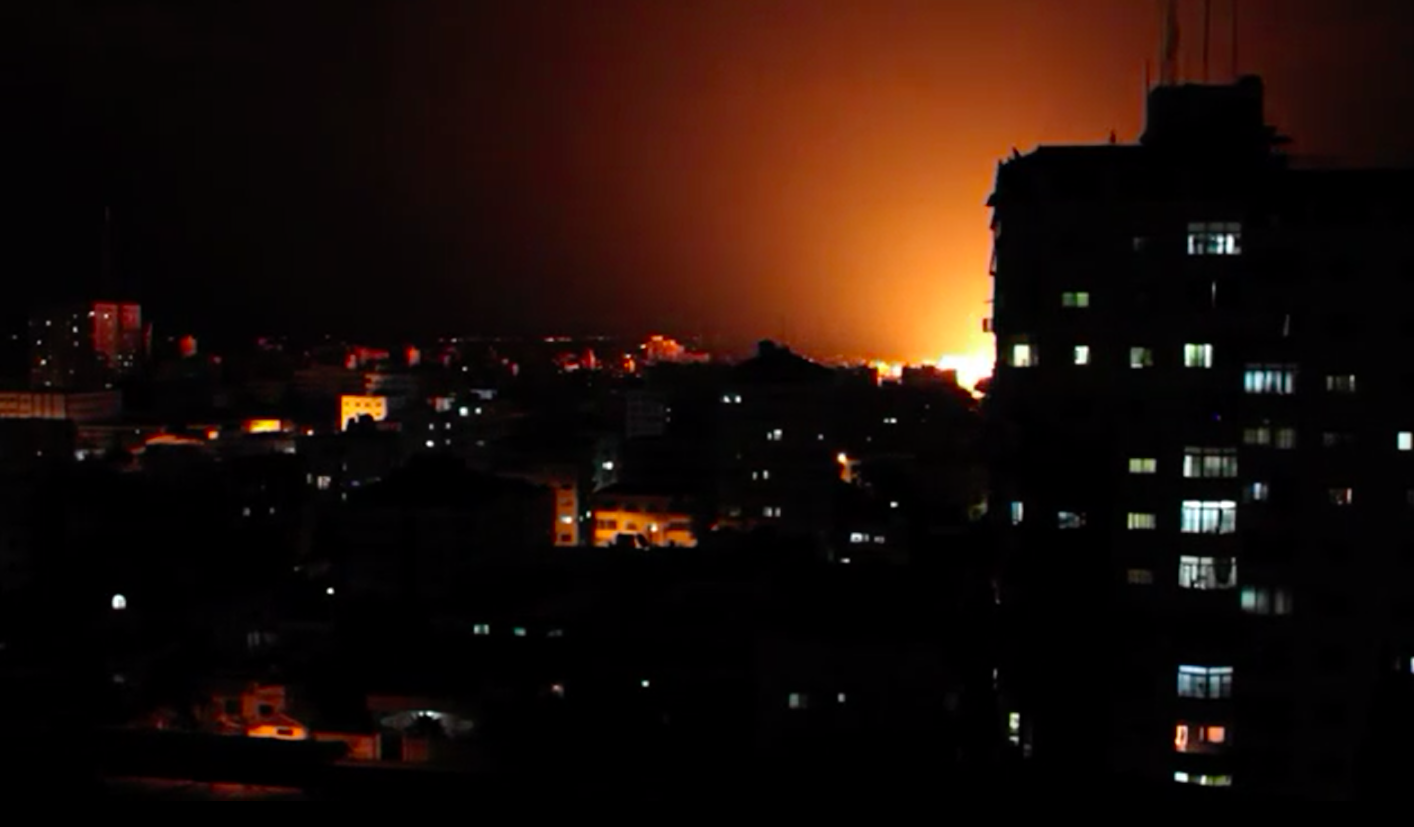
Screenshot from ‘Disregarding Gaza’ of a video taken in Gaza on August 2014 by Samer's host, Jehad Saftawi
Badawi tells us that what was completely different in this last war was the shelling, “because it was completely random.” He described the deafening sound emitted during bombing campaigns, saying that the only difference between being dead and alive is the sound. “Everybody hears the same thing. If you hear the sound, you're okay. That's basically it. That's the difference between being alive and being dead.”
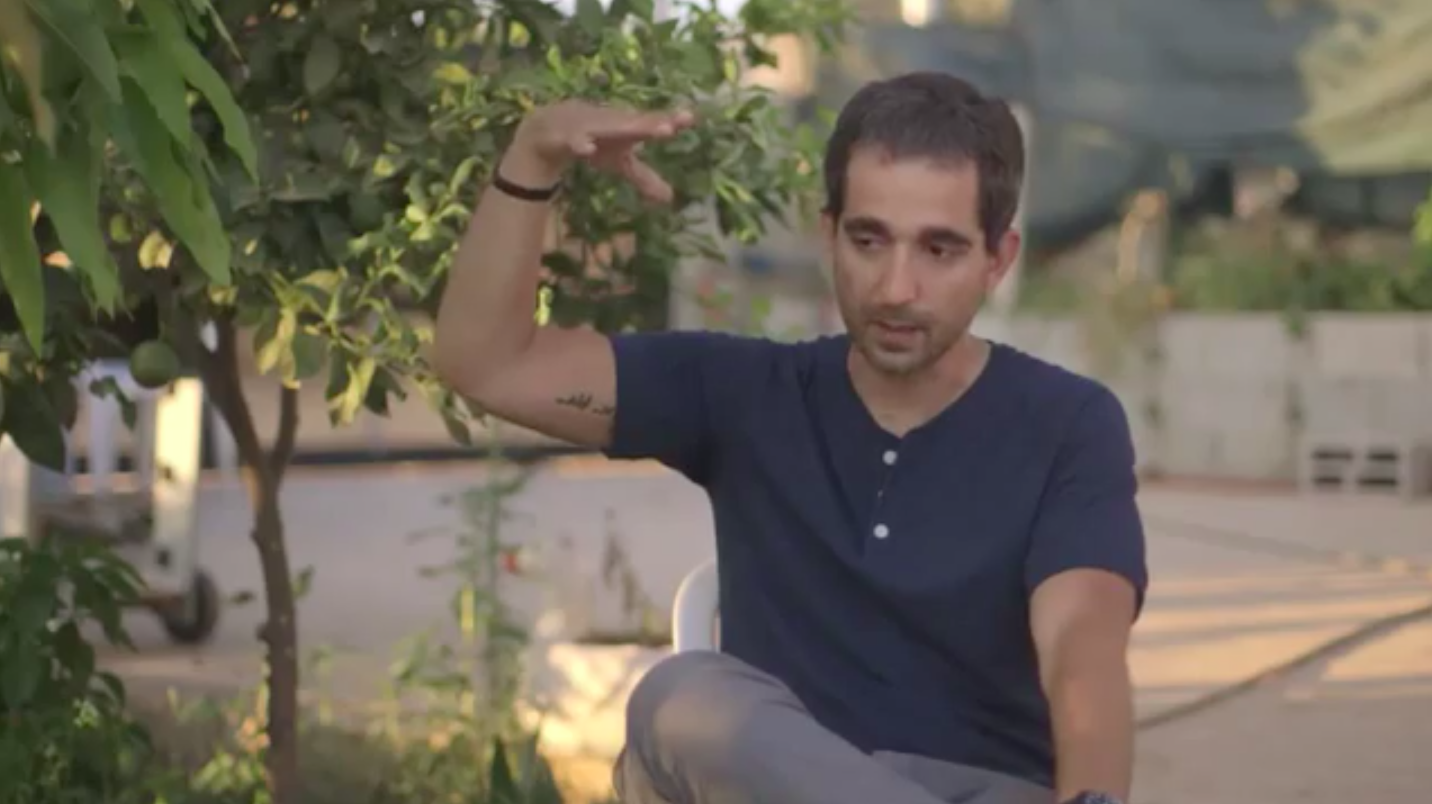
Screenshot from ‘Disregarding Gaza showing Samer Badawi explaining what it felt like to experience the shelling of the neighborhood he stayed in.
The documentary ends with Keren Manor of ActiveStills talking about the nonviolent weekly demonstrations in Bil'in and what it represents for her: “By coming to these places almost every week for more than 10 years, we want to say that these things are happening even if they don't show it in the mainstream media. They're happening, and they're happening every week, and every day.”
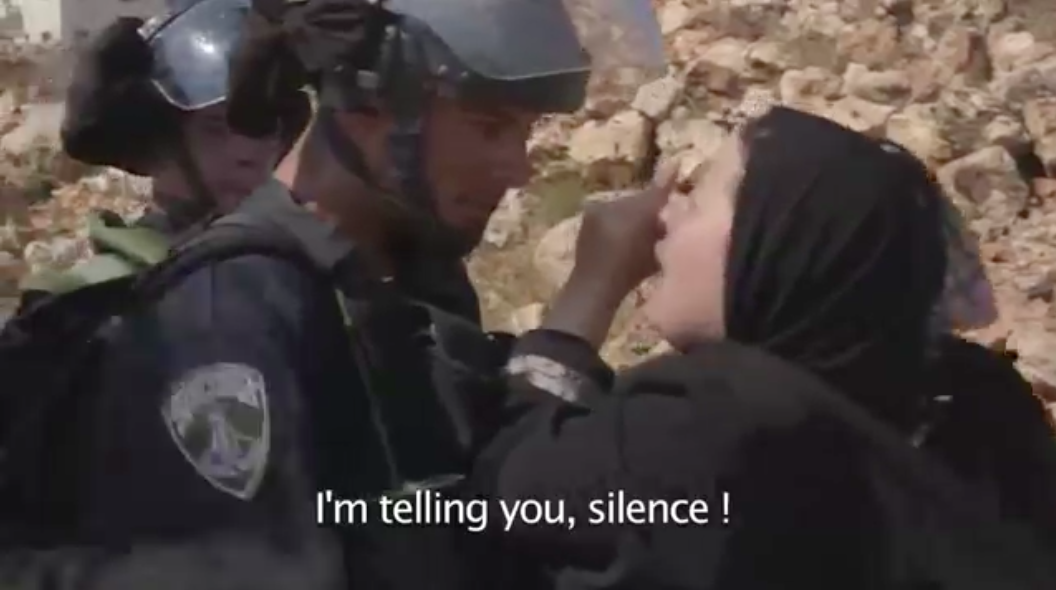
Screenshot from ‘Discarding Gaza showing a Palestinian mother confronting an IDF soldier.
Finally, Noam Sheizat warns of the danger of dividing the conflict into “Pro-Palestinian” and “Pro-Israeli”: “There is a tendency to divide the conversation into a ‘Pro-Palestinian Voice’ and a ‘Pro-Israeli Voice’, and if you criticize Israel, if you criticize Zionism, if you criticize the Israeli government, you're immediately a “Pro-Palestinian” or a “anti-Israeli” and vice versa. We [+972] don't do this separation, pro-that or pro-this. We want to ask, what sort of community can we build here?”







3 comments
Good job!
At least Israel has elections…